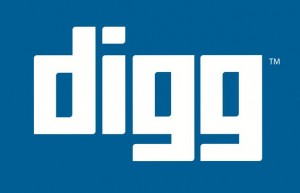DiggBar Returns: Does Anyone Care?
 In 2009, the social news site Digg sparked a controversy when it introduced the DiggBar, a framed toolbar over all outgoing links.
In 2009, the social news site Digg sparked a controversy when it introduced the DiggBar, a framed toolbar over all outgoing links.
According to many webmasters, the DiggBar was an attempt to steal search engine benefit by having all outgoing links point to digg.com rather than the source domain of the content. It also created questions about potential advertising in the Diggbar and possible visitor interference by encouraging people to link to the Digg version of the story rather than original page.
After an outcry from webmasters, Digg scaled back the use of the Diggbar so search engines and non-logged-in users wouldn’t see it. A year later, in 2010, Digg announced they were killing it completely as part of an overhaul of the site.
All seemed quiet from Digg on this issue, that is, until last month with they announced a new Facebook social reader that would include a similar frame. While, at first, it was just for logged-in users, a week later Digg announced they were extending it to all users, logged in or not.
However, this time there’s been no great outcry from webmasters. In fact, I only learned about the DiggBar’s return last week on accident when I visited Digg out of curiosity.
The DiggBar has returned but does anyone care? If not, what makes this one different?
The Fall of Digg, the Rebirth of DiggBar
The removal of the Diggbar in 2010 came at the same time Digg was re-launching its site. However, the relaunch, dubbed “v4” was an unmitigated disaster, wildly unpopular with visitors and regarded as a community killer.
Digg’s traffic and audience plummeted. Though initially the drop was blamed on the removal of Diggbar reducing the number of pageviews, the trend continued well past the loss of Diggbar. Other social news sites, most notably Reddit, rose in prominence at the same time.
According to Alexa (admittedly not the most reliable source) Digg traffic stabilized some in 2011 but has not grown and seems to have continued to drop (albeit more slowly) according to some metrics. Either way, Digg remains well below it’s pre-v4 traffic levels.
Digg is clearly not the poster child of social news that it once was and it appears that this partnership with Facebook, which is from where this new DiggBar arises, is an attempt to right the ship. However, if Alexa is to be remotely trusted, the early indications are that it isn’t helping much, if at all.
However, that doesn’t mean webmasters can or should ignore it as some things simply haven’t changed at all.
Sympathy for the Devil
To put it bluntly, DiggBar was wrong in 2009 and it is just as wrong in 2012. Not only does it raise serious SEO, copyright and trademark issues, but it also comes with ethical problems, namely whether Digg should pad its own traffic stats and extend its feature set at the risk of harming the webmasters they are supposedly linking to?
![]()
However, despite the fact the new DiggBar raises all of the same issues as the one in 2012 did, there’s been almost no outcry over it. In fact, the “frictionless” integration with Facebook has been more controversial than the bar itself and even that controversy has been fairly muted, largely because Facebook has many partners other than Digg in the program (though most don’t use frames).
This lack of outcry is due in part to the fact that framing simply isn’t the hot button issue it was three years ago. However, a likely more important factor is that the Digg that existed in 2009 is not the one that exists in 2012.
Webmasters simply don’t care about Digg. The Digg buttons are almost all gone, talk of the “Digg Effect” has died down and no one is paying much attention to what Digg is doing, good or bad.
This is a large part of why, despite Digg doing largely the exact same thing it did in 2009, almost no one has taken notice. In 2009, the DiggBar was mentioned in articles Wired, PC World and Mashable just to name three, the new one has barely been mentioned at all outside of its connection with Facebook.
The question isn’t so much “Why isn’t the world taking notice?” but “Should it?”
Standing Up to Diggbar 2
To be clear, Digg is still a very large site that receives millions of visits per month and is capable of driving a great deal of traffic and search engine reputation to a site. As such, there is still plenty the new DiggBar can do to either harm webmasters or at least limit the benefit they get from what should a great deal of exposure.
However, as the recent SOPA/PIPA protests showed, gathering a large protest against something requires a feeling of importance and Digg, simply put, doesn’t feel important. As such, the best thing concerned webmasters can do is not just write about it, but also contact Digg directly.
We can’t and shouldn’t expect the same level of protests we saw in 2009. The climate, in particular as it relates to Digg, is just too different.
Fortunately though, one way the climate hasn’t changed is in the wider acceptance of framed toolbars. The first DiggBar did not start a trend. Though some other sites do use toolbars in a limited capacity, such as Hootsuite and StumbleUpon, the use isn’t widespread nor does it appear to be growing.
In short, Digg didn’t start a trend in 2009 and it isn’t likely to start one now.
Bottom Line
If I worked for Digg, I wouldn’t be relieved that the new DiggBar escaped controversy, I’d be worried. The ethics and morals around framing have not changed drastically in the past three years, as seen by the lack of growth in the technique. As such, the big change has to relate to Digg itself and going from being the center of the universe to being ignored is not a positive change.
But even though there isn’t an outcry, my hope is that Digg will, once again, do the right thing and kill the DiggBar a second time. It hurts the websites that it links to and it seems to be done to implement a social reading service few want.
DiggBar may be back from the dead, but it’s time to rebury it and, this time, make it for good.
Want to Reuse or Republish this Content?
If you want to feature this article in your site, classroom or elsewhere, just let us know! We usually grant permission within 24 hours.
